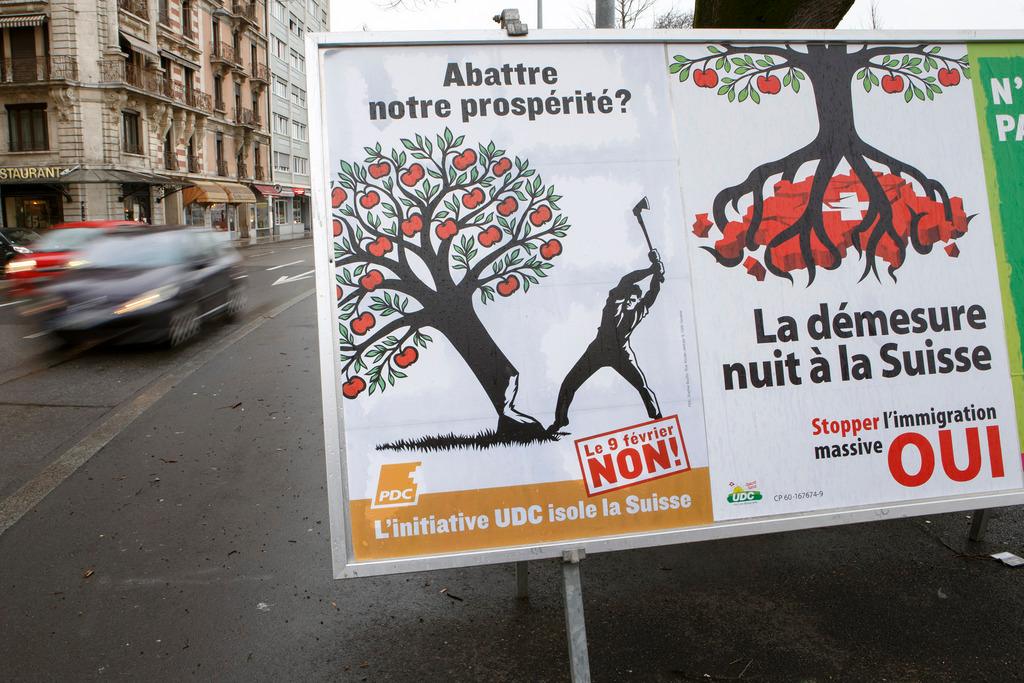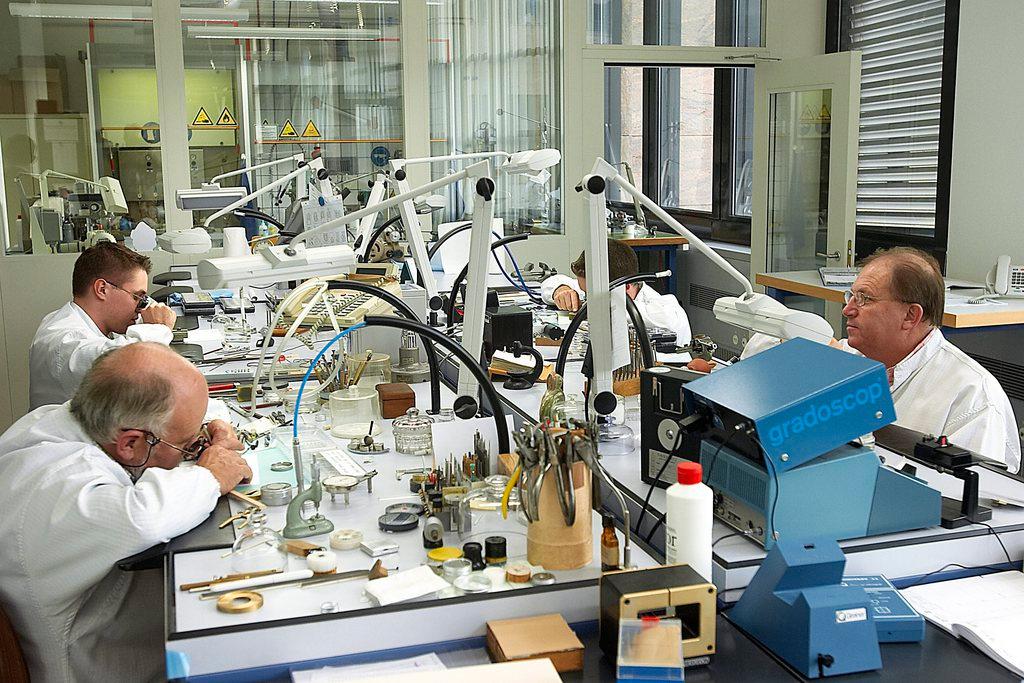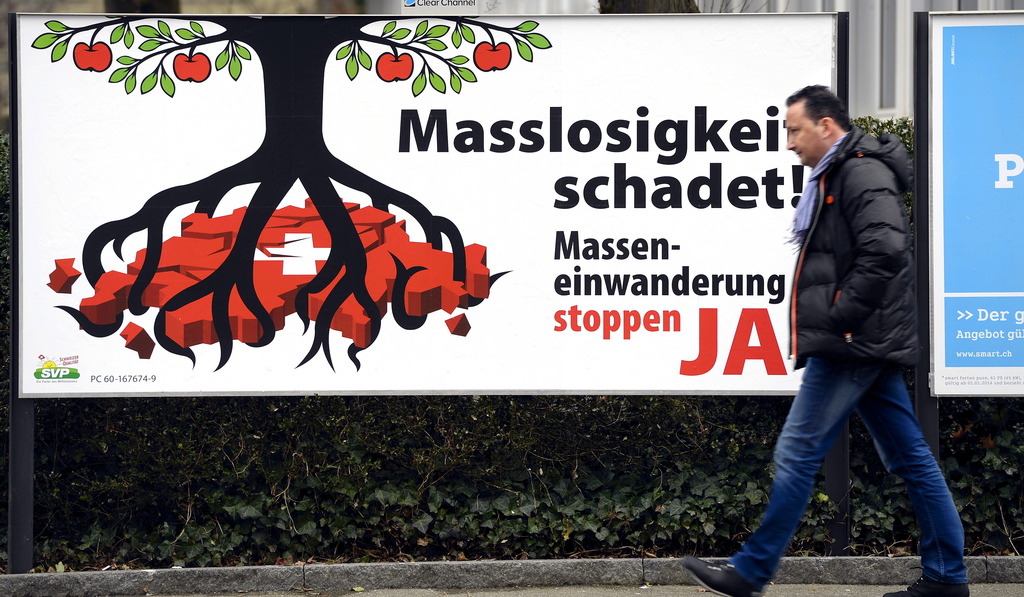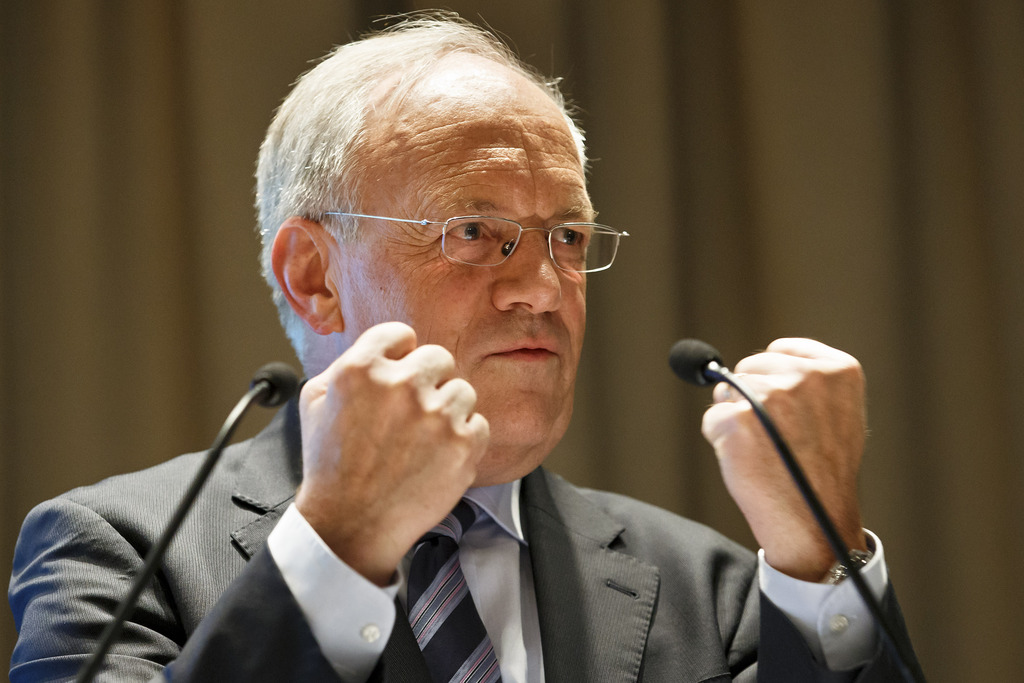Row intensifies over non-EU worker cuts

A debate over a decision to reduce permits to non-European Union workers has taken another twist with the revelation that cantons failed to use up their quotas in the last two years.
The government announced a week ago that the number of non-EU citizens who would be permitted to join the Swiss workforce would be cut from 8,500 per year to 6,500 as of January 1, 2015. The move was a reaction to increasing concerns over the spiraling numbers of immigrants in Switzerland.
The cantonal conference of economic directors (CDEP) greeted the decision with dismay. CDEP Secretary-General Christoph Niederberger told Swiss public radio SRF on Wednesday that the cuts were “regrettable”.
The cantons had been consulted by the government, but in the end were not included in the decision, he added. Fearing negative effects on the local economy, the two Basel cantons have already publicly criticised the government’s decision.
But such protests have been questioned given the fact that around 10% of such work permits, both short-term and long-term, remained unused in the last two years.
Senator Thomas Minder, himself a business executive, wondered what all the fuss was about surrounding the quota cuts. “These [new] quotas will be quite manageable,” he told Swiss public television SRF on Friday.
Cantonal disparities
Filippo Lombardi, a leading member of the centre-right Christian Democratic Party, also doubts that the cut in quota will have much of an impact on the economy. But it could help bring down immigrant numbers, as foreign workers often bring family members with them, he said.
However, Lombardi is unconvinced that the non-EU quota reduction will prove decisive in bringing down immigration numbers, as the overwhelming majority of new arrivals hail from EU countries. “This is not the solution to the problem, but it is a signal,” he told SRF.
But CDEP president Andreas Rickenbacher warned that the issue is not so clear cut. Some cantons, such as Basel or Geneva, that have more multinational companies will suffer from the quota restrictions more.
“There are some cantons that run into problems when their multinational companies start new projects and need to hire more people from abroad,” he said. “Any further reductions in quotas would make this problem worse.”
The government has decided that from next year it will grant 4,000 short-stay permits and 2,500 B permits (a five-year residence permit granted to people who have an unlimited employment relationship or a job lasting at least 12 months). Quotas for both permits have been reduced by 1,000 each from current levels.
Also reduced will be the maximum number of service providers from the EU and European Free Trade Agreement (ETFA) area (including Norway, Iceland and Liechtenstein) who can come to Switzerland for a duration of more than 90 or 120 days – and to whom the free movement agreement does not apply.
Those current 3,000 short-stay permits will drop to 2,000 in number, and the longer-stay permits will halve from 500 to 250.
Ecopop defeated
The cabinet said in a statement that the reduction was intended to create an incentive for Swiss companies to make more effective use of the Swiss workforce.
It is the first time in four years that the government has changed work quotas. In 2011, it raised limits from 7,000 to the current figure of 8,500.
The move is a reaction to the vote on February 9 to limit immigration. The initiative called for a reintroduction of quotas as well as a national preference when filling job vacancies and restrictions of immigrant’s rights to social benefits.
On November 30, Swiss voters overwhelmingly rejected the so-called Ecopop proposal to slash annual immigration by three-quarters from current levels – an initiative that could have sabotaged already fraught relations with the EU. The initiative was strongly opposed by the government, all the main political parties, the business community, trade unions, churches and most charities.

In compliance with the JTI standards
More: SWI swissinfo.ch certified by the Journalism Trust Initiative




You can find an overview of ongoing debates with our journalists here. Please join us!
If you want to start a conversation about a topic raised in this article or want to report factual errors, email us at english@swissinfo.ch.